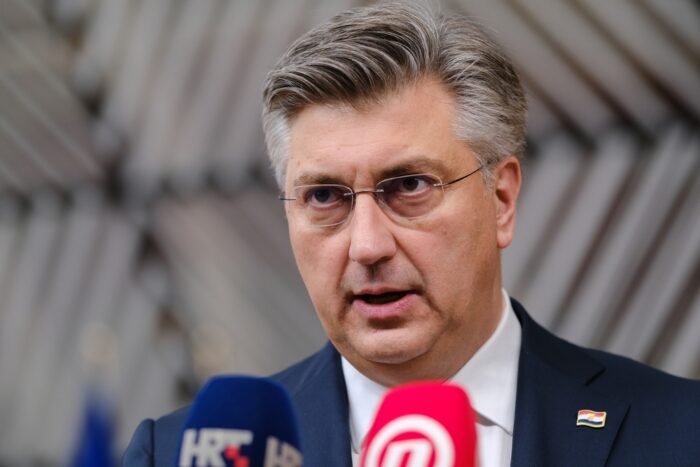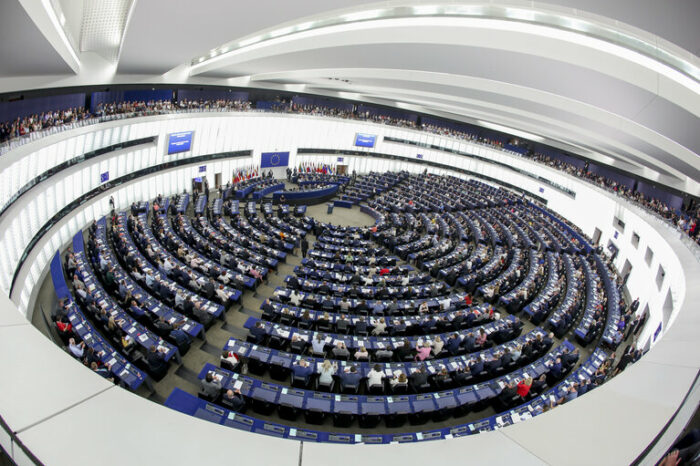The Progressive Post
Digital misogyny and character assassination

“Laura Boldrini must be raped!”
“If I meet her, I’ll beat her up and then call her African friends!”
“Let’s go get her at home.”
“I would throw Boldrini out of the car running into the guardrail.”
“I’d open her skull with a hatchet to see if there’s brains inside.”
“Watch out, Boldrini: we’ll hang you in the square!”
Until the day I entered politics, I always thought that being a woman had no bearing on my personal path. I worked in international contexts – often difficult and risky ones as places of crisis and conflict – oftentimes considered, by a certain worldview, as exclusively male. But in the United Nations system, I had not experienced any limitations due to gender. There, jobs are not made more or less difficult to access for women just because they are women.
Once I came to chair the Italian Chamber of Deputies, I realised, to my surprise, how much my female status weighed, because the attacks I suffered were directed at me not so much for my role or my work, but as a woman. Death and rape were ubiquitous on my social profiles: violent, aggressive and vulgar comments aimed at targeting me through the lens of sexism. It was immediately clear to me that in Italy, a deep-rooted male chauvinist, patriarchal and misogynistic mentality remains, according to which women should not deal with certain issues or hold certain public roles, which should remain reserved for men.
It must be emphasised that what has been done to me is the result of a deliberate political strategy, the so-called character assassination, a deliberate process of destroying a person’s reputation to get her or him out of the way, because one considers her or him to be in the way, or a competitor. I was targeted by the Italian neo-fascist and neo-Nazi galaxy who, every time I took part in initiatives at the local level, showed up shouting insults and slogans dating back to the Mussolini era. And again, in 2014, the 5 Star Movement had used me as an ‘experiment’ to test the reactions of the Net, through a hate campaign typical of populism: hurling personal attacks using vulgarity and violent language. And then there is Matteo Salvini, the leader of the League, who in terms of hate campaigns is second to none. His highly efficient propaganda machine has concocted two operations against me.
Firstly, just like the 5 Star Movement, it has pushed the pedal of sexism so hard that Salvini himself, during a rally, went so far as to appear accompanied by an inflatable doll, shouting to his people: “There is a Boldrini look-alike here on stage!” This was very serious, not only towards me as a woman, but also towards the third office of state I held. Not content with that, he attacked me for my commitment on immigration, systematically altering and manipulating my thinking: in his narrative, I have become the one who wants the invasion of Italy, the ethnic replacement and the Islamisation of the country, and therefore he has exposed me in front of those who follow him as an enemy of the Italians.
What is perhaps more serious is that Salvini has set up a campaign against me that I have no qualms in calling criminal, because he has associated my name with every crime committed by migrants as if I were the instigator of those misdeeds. Through his social networks, reaching millions of people, the secretary of the League party has spread the message that migrants who commit crimes are linked to me. He has associated me with episodes of bloodshed, rape and violence, and coined a hashtag: ‘#risorseboldriniane’ (‘Boldrini’s resources’, as a reference to my statement that migrants represent a resource for Italy). And many of his MPs, mayors, regional and municipal councillors followed him on this way, as, in tow, millions of their followers. A hatred to the nth degree that has generated and still generates hundreds of thousands of messages full of unrepeatable epithets, rape and death threats.
What we live through is a time of hatred in politics as well as the politics of hatred. There is a part of politics – the sovereigntist and populist right – that needs a scapegoat, almost always a woman, to find an enemy to lash out at, by resorting to every means, from artfully created news stories, to slander and posts that contain questions that appear innocent, but in reality, are elaborate to stir up the worst instincts. And if a woman occupies a leading role, she is immediately subjected to an indecent pillory.
Implementing this intimidation strategy serves to relegate women to the lowest point in the chain of power, to discourage them from having a leading role of their own, and to reaffirm that their place is in the private sphere of the family. It is pure misogyny. To trivialise and underestimate the dangerousness of what happens online, to think that feeding misogynistic hatred is a normal practice of confrontation, to believe that virtual violence is not real, is a very serious mistake. Because words give rise to actions and behaviour that can have harmful consequences. If it is the leader who is responsible for the stirring up, those who follow him feel entitled to do the same. And there is no telling what this may lead to. In recent years I have not only seen an exponential increase in threats against me, but even against my daughter! Tags against me have been found on the walls of Rome. Bullets have arrived. And when children are involved, the reaction is one of constant anguish, suffering and apprehension. Not to mention that the danger of emulation is always lurking.
As President of the Chamber of Deputies, I have dedicated a great deal of effort to the issue of fake news, given the enormous distortions they produce in the functioning of democratic life. So-called ‘hoaxes’ pollute public debate and have a very bad effect on people’s lives. Against this phenomenon, I have launched campaigns and appeals, I have set up two parliamentary committees (on disinformation and xenophobia, respectively), I have organised awareness-raising initiatives, seminars and conferences, also – and perhaps above all – dedicating them to young people, to make them fully understand the dangers of disinformation.
After my time as President of the Chamber, as a member of parliament, I presented a law against revenge porn, which is the new frontier of violence against women; and then a proposal for a law on hate on the net, which in my opinion is fundamental to prevent the restriction of freedom of expression of those who, for fear of being attacked, prefer to keep quiet or leave social networks, thus depriving themselves of freedom and the right to express themselves. This damages democracy, consensus and even dissent, and affects the outcome of election campaigns.
It is not true that regulation and the Internet are incompatible. The deviance of the web can indeed be combated through the introduction of appropriate regulations because the absence of rules does not mean a guarantee of a free web, but rather the prevalence of the interests of the strongest, if not abuses.
The road is long, as is every cultural and societal change if we want to respect the real meaning of the internet and bring it back to what it originally was, namely an extraordinary ‘agora’ of exchanges and opportunities, the rules must not be established by the strongest – the web giants – or by the violent. The web must not be hostage to these. And above all, it should not be forgotten that there is, unfortunately, a direction of ‘digital squadrism’ that is political in nature and located in the right-wing populist universe, and which should question politics and civil society. What we hear instead is a deafening silence.
Women who experience such a reality are often told: ‘let it go’, ‘step aside for a while’. This is the premise for saying, immediately afterwards, that ‘partly, you brought it on yourself’, as if it were a sin to do one’s job and express one’s ideas. What we would expect, as women, as politicians and as professionals, is support, backing and encouragement from our colleagues, from the working world in which we are engaged and from our parties.
This is why women must no longer remain silent. The violence and intimidation they suffer online must be denounced, publicly and in the courts. And men must be at our side in the journey towards a change in mentality that can no longer be postponed. A change focused not only on equality, but also on a mature digital consciousness, especially on the part of the younger generation.
Photo credits: Shutterstock.com/Black Salmon




